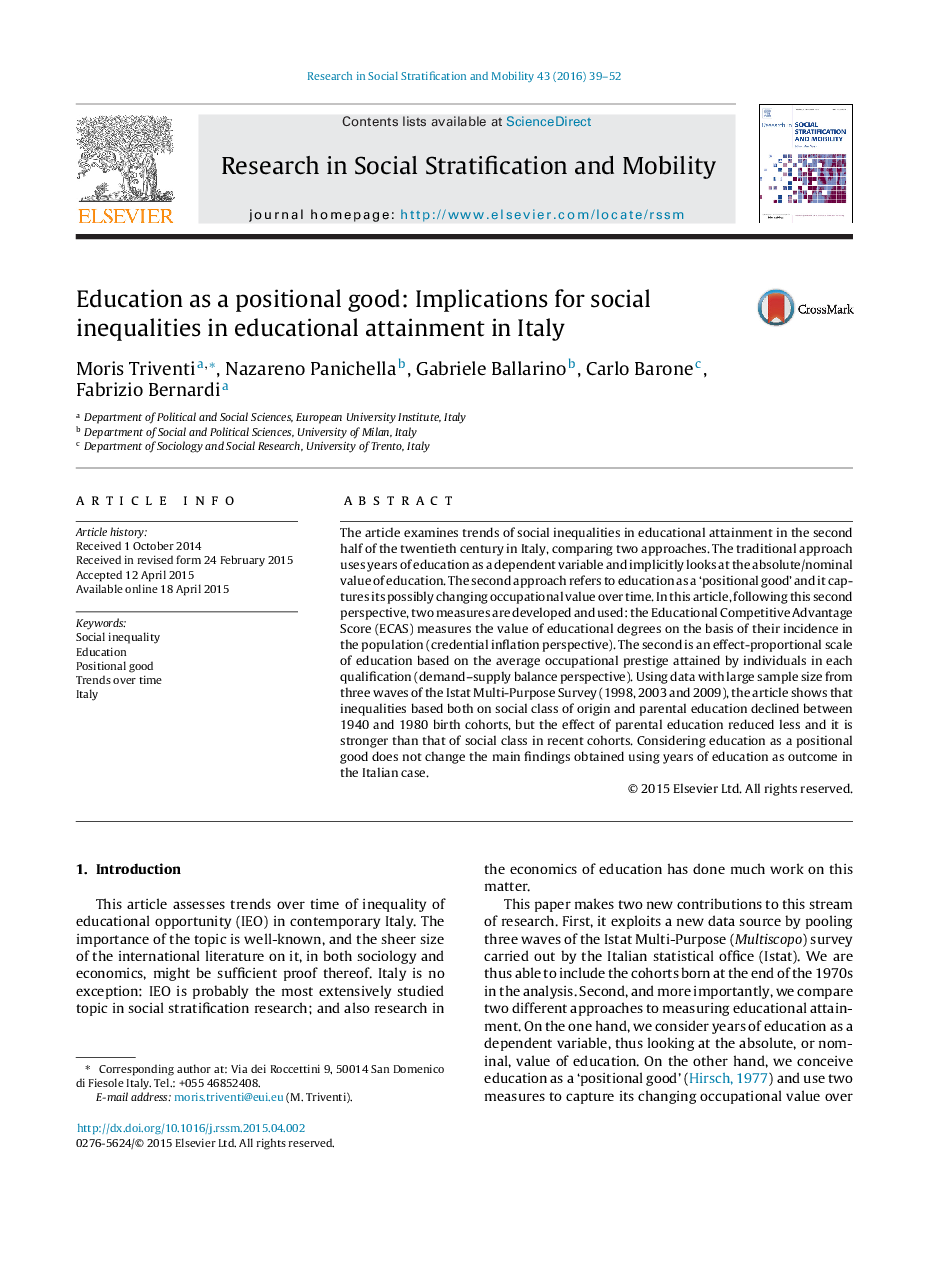| Article ID | Journal | Published Year | Pages | File Type |
|---|---|---|---|---|
| 998567 | Research in Social Stratification and Mobility | 2016 | 14 Pages |
•Trends of social inequalities in educational attainment are examined.•The traditional approach (nominal value of education) is compared with another that treats education as a positional good.•Two novel measures of the relative value of education are developed.•A decline of inequalities occurred in Italy in the second half of the twentieth century.•The results are mostly similar using the two different approaches.
The article examines trends of social inequalities in educational attainment in the second half of the twentieth century in Italy, comparing two approaches. The traditional approach uses years of education as a dependent variable and implicitly looks at the absolute/nominal value of education. The second approach refers to education as a ‘positional good’ and it captures its possibly changing occupational value over time. In this article, following this second perspective, two measures are developed and used: the Educational Competitive Advantage Score (ECAS) measures the value of educational degrees on the basis of their incidence in the population (credential inflation perspective). The second is an effect-proportional scale of education based on the average occupational prestige attained by individuals in each qualification (demand–supply balance perspective). Using data with large sample size from three waves of the Istat Multi-Purpose Survey (1998, 2003 and 2009), the article shows that inequalities based both on social class of origin and parental education declined between 1940 and 1980 birth cohorts, but the effect of parental education reduced less and it is stronger than that of social class in recent cohorts. Considering education as a positional good does not change the main findings obtained using years of education as outcome in the Italian case.
